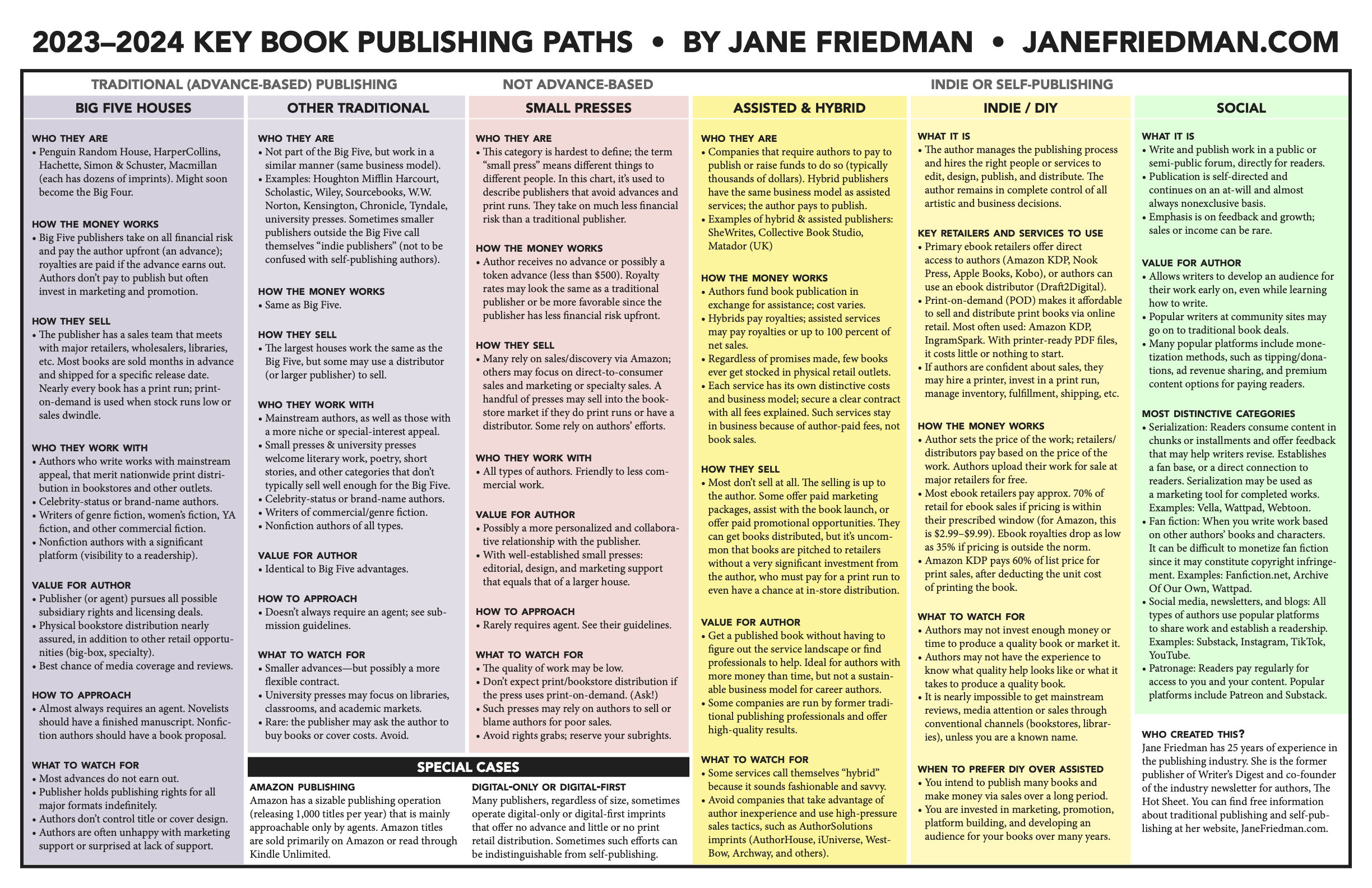Coragem
Believer in flawed heroes
I would never advise anyone to take any particular publishing route. BECAUSE THEY'RE ALL A LOTTERY. They all involves possible pitfalls. Swings and roundabouts and roulette wheels. However, this might be of interest to, well, me most of all, but perhaps some of you.
Basically, having listened to the podcast linked below, I've been feeling a bit more optimistic about self-pub. NOT that I could ever, or would ever want to write like the guest author in the podcast (Nick Thacker). The guy has a background in marketing and he's taking just weeks to write (in fact dictate) entire, finished novels. For me taking time over the language and the style is a lot of the point of writing. Nonetheless, some optimism:
(1) The impression I get is that while trad pub can bring initial income with the (normally not huge) advance, and there can be some buzz around the release, it's pretty common for books to largely disappear thereafter. In contrast, self pub, if it works out, can be the opposite way around. Sure, it may be that practically no one buys the first book at the start. But as more titles are released, and there's more advertising (paid ads, social media, email newsletter) things can BUILD. Every new release is exposure that advertises what's already been released.
(2) Personally I find writing for agents/trad can be disabling. I'm always feeling pressured to reach such a high bar. So I guess I like the idea of being free to just write the best thing I can within a certain timeframe, without "gatekeeper stress".
(3) As is always said, with self-pub we have control. Providing I still have time to write (!), I like the idea of deciding my own cover, arranging my own editing and typesetting, having the freedom to keep working at advertising, i.e., trying different things even if at first results aren't great. Of course, I should stress that I'm very fortunate to be in a position where I can contemplate paying for my own ads (as well as editing and cover design). I can afford to chance that investment, even knowing that I may well not get the money back in sales. Not everyone is in the same position.
With all that said, my current WIP is going to agents when it's ready. After that, I'll see.
Basically, having listened to the podcast linked below, I've been feeling a bit more optimistic about self-pub. NOT that I could ever, or would ever want to write like the guest author in the podcast (Nick Thacker). The guy has a background in marketing and he's taking just weeks to write (in fact dictate) entire, finished novels. For me taking time over the language and the style is a lot of the point of writing. Nonetheless, some optimism:
(1) The impression I get is that while trad pub can bring initial income with the (normally not huge) advance, and there can be some buzz around the release, it's pretty common for books to largely disappear thereafter. In contrast, self pub, if it works out, can be the opposite way around. Sure, it may be that practically no one buys the first book at the start. But as more titles are released, and there's more advertising (paid ads, social media, email newsletter) things can BUILD. Every new release is exposure that advertises what's already been released.
(2) Personally I find writing for agents/trad can be disabling. I'm always feeling pressured to reach such a high bar. So I guess I like the idea of being free to just write the best thing I can within a certain timeframe, without "gatekeeper stress".
(3) As is always said, with self-pub we have control. Providing I still have time to write (!), I like the idea of deciding my own cover, arranging my own editing and typesetting, having the freedom to keep working at advertising, i.e., trying different things even if at first results aren't great. Of course, I should stress that I'm very fortunate to be in a position where I can contemplate paying for my own ads (as well as editing and cover design). I can afford to chance that investment, even knowing that I may well not get the money back in sales. Not everyone is in the same position.
With all that said, my current WIP is going to agents when it's ready. After that, I'll see.



